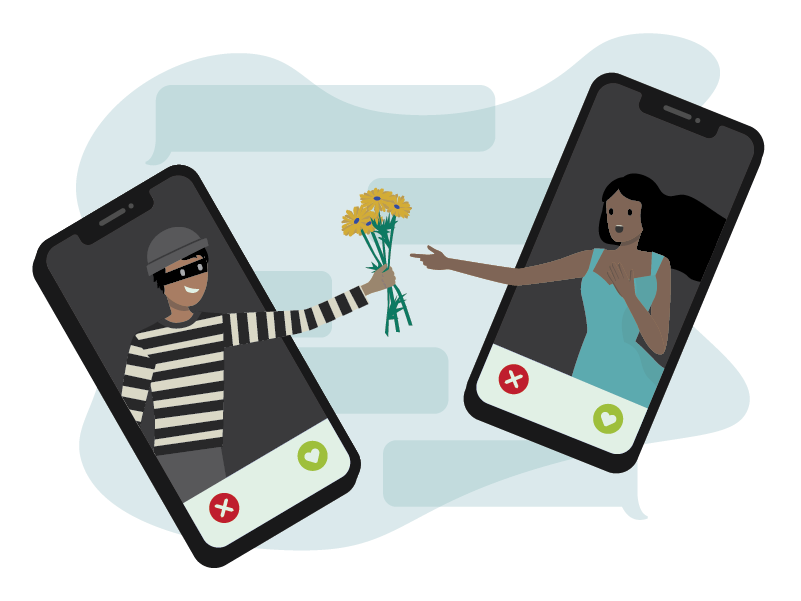
Fraud Education
About

Romance Scams
Sometimes people are attracted to your heart, other times their motivation is your bank account. Romance scams, which impact individuals from all walks of life, have proliferated in recent years. In 2022, the Federal Trade Commission (FTC) reported an estimated 70,000 consumers were defrauded out of $1.3 billion. It’s a significant jump from the $547 million in losses reported in 2021.
How do romance scams blossom? It’s as easy as 1-2-3. First, a scammer creates a fake profile on a dating app or popular social media platform. Next, they start up a relationship, build trust and sometimes even going so far as proposing marriage. Finally, the scammer concocts a tall tale and asks for money. The most common lies? They have a relative who is sick/hurt/in jail, want to teach you how to invest, are far away serving in the military or need help with an important delivery.
How can you spot a romance scam?
Scammers do research and select victims based on information that’s readily available online. They initiate relationships quickly, cultivating them over time and messaging frequently to build trust. Scammers try to keep relationships online, never meeting in person or, if they do agree to meet, often cancel with excuses. If an online “love interest” is pursuing you, look for red flags like these:
- Can’t — or won’t — meet you in person or cancels multiple planned meetups
- Has never met you in person but has asked you for money or cryptocurrency
- Asks for explicit photos which they may later threaten to share with your social media contacts
- Tells you very specifically how to pay them
- Pressures you into acting immediately
Despite promising quick repayment, most romance scam victims are never repaid. Even worse, the scammer continues to ask for money or elicits sensitive financial information that can be used for account takeovers or identity fraud.
Don’t send money to people you’ve never met in person or only know online.

What steps help stop romance scams?
Romance scammers can thrive because victims are so ashamed and humiliated by being duped that they won’t report the crime. Scammers are often part of well-organized, overseas criminal enterprises that spoof phone numbers and hire actors to support their crimes. If you think you’re being pursued by a romance scammer, take these steps:
- Stop messaging with the person right away.
- Use the person’s profile picture to complete a reverse image search to see if the photo is used on other profiles.
- Search online to see if there is a scammer connected with the job or career they have shared with you such as “oil rig scammer” or “US Army scammer.”
- Talk to someone you know and trust about what is happening to get their perspective especially if they have concerns about your relationship.
If you paid a scammer using a gift card, wire transfer, your credit or debit card, or cryptocurrency, find out who to contact and what you can do. Next, report it to the FTC at ReportFraud.ftc.gov and if you met them on a social networking site or app report it to them, too.
Sources: ftc.gov, secretservice.gov, fbi.gov



